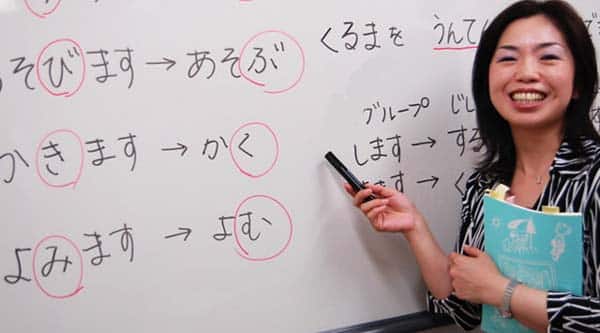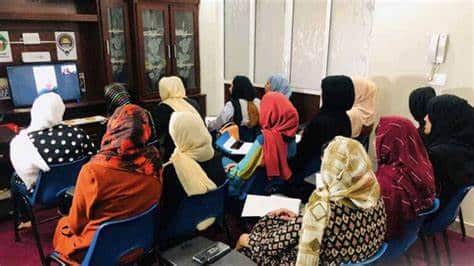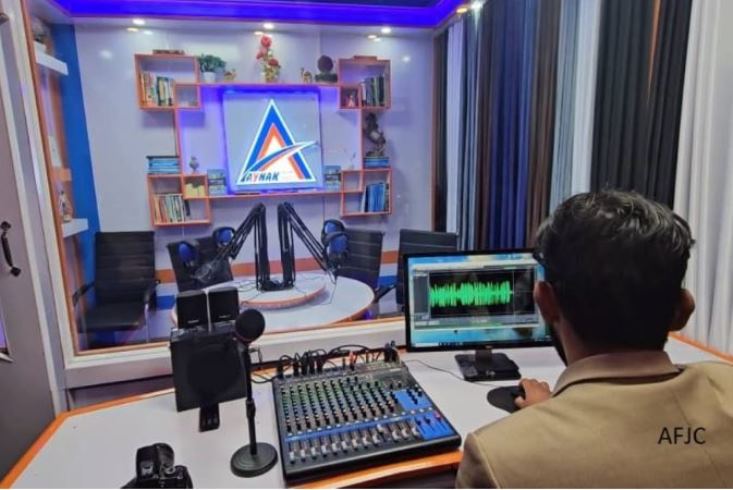
JAPAN-AFGHANISTAN LANGUAGE SCHOOL PATHWAYS (JALP) 2024
مسیرهای مکتب زبان جاپان-افغانستان (JALP) 2024
What is Japan-Afghanistan Language School Pathways (JALP)?
Japan-Afghanistan Language School Pathways (JALP) offers an opportunity for Afghan youth to study Japanese in private language schools across Japan for two years. The program targets those in Afghanistan who seek evacuation to Japan or have fled to other countries after August 2021. It was modeled after Japan-Syria Japanese Language School Pathways and aims to help Afghan students acquire the level of Japanese necessary to enter universities and graduate schools or find employment.
In April 2024, around 6 Afghan students will be admitted to this program.
What the Program Provides
・Japanese language classes prior to travel to Japan
・Airfare to Japan
・Support for visa issuance and residence permit
・Tuition at a Japanese language school for two years
・Subsidy for the first six months
・Introduction of part-time job opportunities and housing
・Educational consultation and/or career consultation every three months to enter university or find employment
Please note that students are expected to work part-time to cover their rent and living expenses. Pathways Japan and language schools will help you find part-time work.
Pathways Japan will also help students find an apartment or shared house in Japan.
Future Prospects
If you are a high school graduate …
After you improve your Japanese language skills and obtain sufficient scores in the
Examination for Japanese University Admission for International Students (EJU), you can apply to universities in Japan. The program will offer regular consultation on the preparation for this exam, but scholarships for universities are not guaranteed and it is your responsibility to apply for financial aid. After graduating from a university or vocational school, you will have a good chance of finding a job in Japan. When you find employment, you can obtain a work visa in Japan.
If you are a university graduate …
Once you complete the two-year course, you can apply for a master’s degree by obtaining a scholarship. It is also possible to find employment and obtain a work visa. A high level of Japanese is normally required to find a job in Japan, even if one is fluent in English. It is also possible to apply for a master’s or doctor’s degree by saving enough funds through several years of work..
Eligibility
- Must be an Afghan national
- Must reside in Afghanistan and seek evacuation to Japan or fled to other countries after August 2021
- Must be single or partners (e.g. a husband and a wife) without accompanying families (The Japanese government does not issue visas for accompanying family members for language students.)
- Must have completed 12 years of school education, or be expected to complete 12 years of school education by March 2024 (This is a requirement to obtain a student visa in Japan.)
- If you are a high school graduate, you must be 26 years old or younger; if you are a university graduate, you must be 32 years old or younger.
- Must have studied or be studying Japanese.
- Must agree to work part-time at an entry-level job to cover your own living expenses
- Must not have a financial obligation to support family members (Students should expect part-time work to cover only their own living expenses, and not to support their families.)
- Must be able to submit the following documents:
a) Document describing your refugee background (e.g. letter explaining the difficulty of staying in or returning to your home country, issued by an NGO or an expert. If this cannot be obtained, the candidate can write his/her own statement.)
b) Passport copy (If you do not currently have a passport, you may apply without one, but you must obtain one by February 2024)
c) High school graduate certificate or equivalent document
d) High school transcript for grades 10-12 or equivalent document
e) (If you are a university student or graduate) University certificate and transcript for registered terms
f) Recommendation letter (*This letter should not be written by family members, relatives or friends. A letter from someone in Japan who may offer advice, information or any support to the applicant is desirable.)
Supporting Organizations
Pathways Japan – Implementing Organization
Pathways Japan (PJ) is a Japanese non-governmental and non-profit organization, independent of the Japanese government or UN agencies, supporting people with refugee backgrounds to be admitted to Japan to access higher education and employment. This program, originally called the Japanese Language School Program, and managed by the Japan Association for Refugees (JAR), was handed over to PJ on July 1, 2021.
Japanese Language Schools – Host Organizations
In 2023, around five Japanese language schools are planning to admit Afghan youth to study Japanese from April 2024 to March 2026. These schools will provide a full-tuition scholarship. If you would like more information about the host schools, please contact us here.
Japan ICU Foundation – Funding and Implementing Organization
The Japan ICU Foundation (JICUF) is a US non-profit organization based in New York. Since 2016, JICUF has partnered with JAR, and later with PJ, to administer the Syrian Scholars Initiative (SSI), a scholarship program for Syrian students to study at International Christian University (ICU) in Tokyo, Japan. From 2018 to 2022, SSI admitted seven Syrian students and has been offering them a full scholarship for four years. From 2023, JICUF will provide partial funding to administer JLSP and will support Afghan students in addition to Syrian students.
Application is open from Monday, 7th August to Monday, 28th August, 2023.
Main Resource Link
- Tags
- Asia



